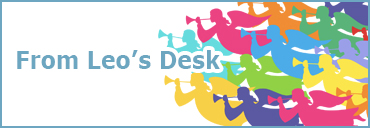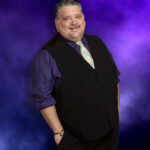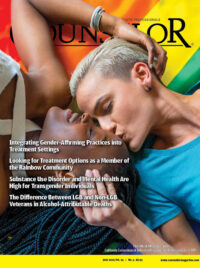Share

The thought occurred to me that my articles are so clear and logical that readers agree with my sentiments, indeed think the same way as I do, and therefore no response is necessary.
Really? I do not think so. Also, my articles are really controversial, both religiously and from a recovery perspective, so why the silence? Then I realized that the information concerning how to contact me is incorrect! My fault. My email is leobooth46@gmail.com and I can be found on Facebook by searching for “Leo Booth.” That explains everything! You will note in my biography that the changes have been made.
I believe that God is not controlling what happens in this world, through the direct action of God’s grace. On the contrary, my belief today is that we have free will and that means that the actions we take create the outcome, for good or bad. This is a markedly different position from Bill Wilson, and others, who believe that “God is doing for us what we cannot do for ourselves.” Such a belief is consoling, but (I believe) wrong. God does not get people sober from alcoholism and His job is not to keep people sober; that responsibility is ours.
In an issue of Counselor last year, I wrote the following:
This is not how I was raised. I was raised to believe that God is separate. That I had to go to Him, seek Him, and find Him. I do not believe this anymore. I am more inclined to the affirmation “Whatever I am, God is, and all is well.” I do not ever want to miss me in the miracle of life. I am not a puppet, but a creative human being (Booth, 2016).
Talking about God’s grace is a particular Christian insight that suggests that a spiritual power is emanating from God that changes or encourages human actions or behavior. So, we hear frequently in recovery rooms:
- “I am able to remain sober through the grace of God.”
- “My life has been changed through the grace of God.”
- “I could not stop drinking. But only because of the grace of God (or Jesus) I am now sober ten years.”
This is what I believe today:
What if grace is not something that descends upon us, but has been given to us at birth? God’s grace becomes akin to our reasoning powers, our ability to think and make choices, our ability to take responsibility for our lives and what is happening in our world.We utilize God’s grace when we see clearly the many disabilities that affect mankind and we use our brains to figure out ways to prevent sickness. God’s grace is working through doctors and scientists.We see God’s grace in the work of recovering alcoholics throughout the world who make the choice to stop drinking and then stay stopped. They begin to clear the wreckage of their past and embrace a spirituality that is both positive and creative.We see God’s grace at work in countries that are slowly working their way out of poverty and developing economic employment for their citizens. God’s grace is never favoritism, rather is it knowing and massaging a gift that has been given to every human being (Booth, 2017).
Change
Today I am able to live with a spiritual agnosticism that refuses to place me in a box, and I am able to appreciate other religions and spiritual viewpoints. It is the journey that fascinates me today, not the destination.
I am not wanting to be argumentative or controversial, rather I wish to be honest with readers. And when I sit with other recovering people, I am amazed to hear that they feel similar, they think the same, but are afraid to voice such ideas within the recovery community. Now that is scary. We become fake when we fear being honest. Cults maintain their power when individuals give up their freedom to think.
Is anybody there?
About Me
Larry Hearn is a seasoned SUD counselor, licensed Religious Science Practitioner, and a committed advocate for healing and personal transformation. Armed with a Social Model Studies Certificate from the CCAPP Academy (formerly known as the CAARR Institute), education from Modesto Junior College, and certification from CCAPP, Larry boasts a robust 24-year background in addiction counseling. As a member of the California Coalition of Certifying Organizations (CCCO), he played an active role in shaping the California Code of Ethics and Sanctions Matrix.
Larry currently serves as Supervising Editor for Counselor Magazine and Media & Infrastructure Manager for the California Consortium of Addiction Programs and Professionals (CCAPP), where he combines his clinical insight with media and educational strategy to uplift the profession and support the workforce.
His passion extends to facilitating treatment and education groups, grief circles, and individual counseling, creating a secure and supportive environment for individuals to navigate recovery, grief, and emotional trauma. He enjoys training and mentoring SUD counselors. In his capacity as a licensed Religious Science Practitioner, he seamlessly integrates therapeutic and spiritual modalities, guiding individuals on a journey toward enduring recovery and inner peace. Beyond addiction counseling, Larry underscores the significance of grief healing and personal growth in his compassionate approach.











 Counselor Magazine is the official publication of the California Association of Addiction Programs and Professionals (CCAPP). Counselor offers online continuing education, article archives, subscription deals, and article submission guidelines. It has been serving the addiction field for more than thirty years.
Counselor Magazine is the official publication of the California Association of Addiction Programs and Professionals (CCAPP). Counselor offers online continuing education, article archives, subscription deals, and article submission guidelines. It has been serving the addiction field for more than thirty years.